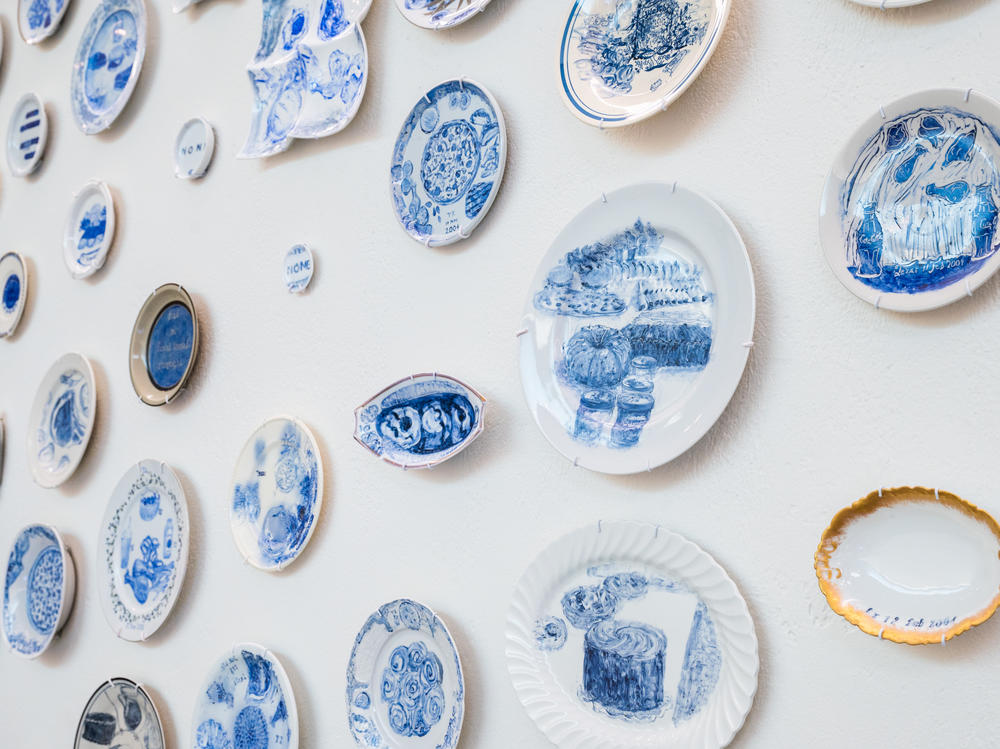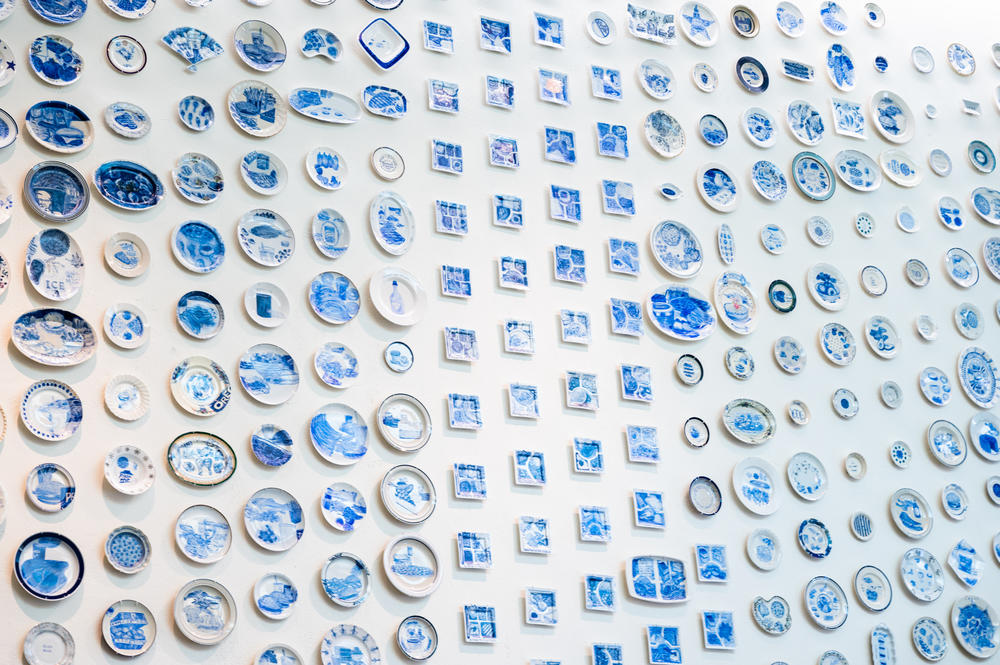Section Branding
Header Content
Julie Green, who painted plates with the last meals of death row inmates, has died
Primary Content
Julie Green, an artist known for painting the last meals of death row inmates on hundreds of plates over several decades, died earlier this month. Green was 60.
Green gained notoriety for an ongoing project, entitled The Last Supper, which consisted of hundreds of plates painted with the last meals requested by U.S. prisoners who were scheduled to be executed.
Among the dishes inmates asked for: a stuffed-crust meat lover's pizza, an apple pie, shrimp, ice cream, a Coke.
Green, who was an art professor at Oregon State University, got the idea for the project years ago after reading about the last meals requested by inmates in an Oklahoma newspaper.
"For me, a final meal request humanizes death row," Green said in a 2020 statement posted on the Bellevue Arts Museum's website. "Menus provide clues on region, race and economic background."
The Last Supper is currently on view at the museum in Bellevue, Wash., with 800 plates in the exhibit. Green intended to paint 1,000 plates if capital punishment wasn't outlawed.
Green later started a related project called First Meal, painting what inmates who were exonerated and released from prison ate for their first meal after being released.
Copyright 2021 NPR. To see more, visit https://www.npr.org.


